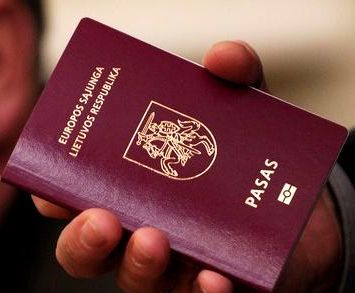- Home
- 2017 10 31 For reinstatement of citizenship of Lithuania, it is necessary to retain citizenship of Lithuania on 1940 06 15
2017 10 31 For reinstatement of citizenship of Lithuania, it is necessary to retain citizenship of Lithuania on 1940 06 15

On 31 October 2017, a new resolution of the Supreme Administrative Court of Lithuania was adopted in the case of reinstatement of citizenship of Lithuania.
In the case, the applicant appealed against the order of the Minister of the Interior regarding a non-reinstatement of citizenship of Lithuania. The applicant has acquired the citizenship of another country and does not intend to renounce this citizenship. He may restore Lithuanian citizenship and have dual citizenship if he would meet the exception provided for in Subsection 7, Article 7 of the Law on Citizenship of the Republic of Lithuania – is a descendant of the person who departed from Lithuania before the restoration of independence of Lithuania on 11 March 1990. The applicant was a descendant of the person who departed from Lithuania during the World War II.
The applicant was born on 05 April 1937 not in Lithuania. His father was born on 01 January 1912 in Panevėžys and had citizenship of Lithuania. The father left Lithuania in 1935 and, in 1937, lost Lithuanian citizenship because he had voluntarily acquired the citizenship of another state. Already being a citizen of another country, he arrived in Lithuania without obstacles in 1938 and lived here until the occupation of the Soviet Union in 1941.
The applicant’s father’s departure during the World War II in 1941 may already have been influenced by political reasons. However, the father at that time was no longer a citizen of Lithuania, and the acquisition of the citizenship of another country was in 1937 due to his previous actions, not related to the political situation or the occupation regime.
The concept is entrenched in the case-law that a person who departed from Lithuania until 11 March 1990 shall be considered as a person who had Lithuanian citizenship until 15 June 1940, or as his descendant, or as persons departed from the current territory of Lithuania before 11 March 1990 to permanently live in other country, if their permanent place of residence was not in Lithuania. This concept does not embrace persons who departed from the territory of Lithuania to the former territory of Soviet Union after 15 June 1940.
On the basis of explanation of legal norms, to apply for the restoration of citizenship of Lithuania, together retaining the current citizenship of another state, can only these persons, who:
- Had citizenship of Lithuania on 15 June 1940, and the descendants of such persons.
Due to these reasons, the defendant in the case challenged the applicant’s compliance with the provisions of Section 4, Part 1, Article 7 of the Law on Citizenship of the Republic of Lithuania, and stated that they cannot be applied to the applicant as a citizen of Lithuania, who departed from Lithuania before 11 March 1990, because the departure of his father from Lithuania in 1941 does not comply with the purpose of legal regulation established by the law.
In the case-law, when applying provisions of dual citizenship exceptions, a period of Lithuanian citizenship is not defined by the date 15 June 1940 inclusive, but it is important that:
- The departure of a person from the territory of Lithuania should have been influenced by emerging or already existing unfavorable political reasons;
- At the time of departure, such person should have been Lithuanian citizen or had lost Lithuanian citizenship until 15 June 1940, not due to his volitional actions, but due to unfavorable political reasons.
Even though in the case the departure of the applicant’s father from Lithuania in 1941 could be influenced by political reasons, the Court accentuated that at that moment he was no longer a citizen of Lithuania and acquired a citizenship of other state voluntarily by previous actions, thus, he does not comply with the departure of Lithuanian citizen from Lithuania defined by law until 11 March 1990. Due to this reason, provisions of Section 4, Part 1, Article 7 of the Republic of Lithuania Law on Citizenship cannot be applied to him, regarding the exception to acquire dual citizenship as a descendant of the person who departed from Lithuania before the restoration of independence on 11 March 1990.
Therefore, the Supreme Administrative Court of Lithuania has stated in the Resolution that only those persons can apply for the restoration of citizenship of Lithuania, together retaining the current citizenship of another state, who had citizenship of Lithuania until the occupation by the former Soviet Union in 15 June 1940, and the descendants of such persons.
MIGRATION LAW CENTER






























